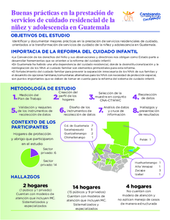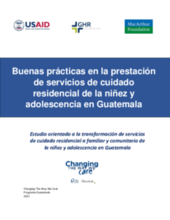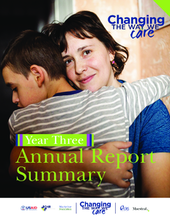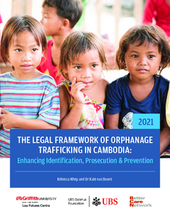Demographic Data
|
Sources: World Bank, UNDP, UNAIDS, DHS 2013 |
Displaying 2941 - 2950 of 14390
This report presents the findings from the National Survey of Residential Centres for Children with Disabilities in Rwanda. The survey aimed at gathering comprehensive and disaggregated data related to residents’ characteristics, staff profile, and the minimum standards for the centres.
This study is part of the response to the global call for the provision of quality alternative family-based care and prevention of family separation for children with disabilities. The study is premised on the view that the knowledge, attitudes, and practices regarding the attributes assigned to, and the conceptualization of, children with disabilities in their families and communities, vis-à-vis institutional care for children with disabilities, are also crucial determinants of barriers/ enablers of full and meaningful integration of children with disabilities into community life in Rwanda.
OBJETIVOS DEL ESTUDIO: Identificar y documentar mejores prácticas en la prestación de servicios residenciales de cuidado, orientados a la transformación de servicios de cuidado de la niñez y adolescencia en Guatemala.
Estudio orientado a la transformación de servicios de cuidado residencial a familiar y comunitario de la niñez y adolescencia en Guatemala.
Cambiando la Forma en que Cuidamos (o sus siglas en inglés, CTWWC) Guatemala realizó un estudio con el objetivo de identificar y documentar buenas prácticas en la prestación de servicios de cuidado residencial, con el objetivo de transformar los servicios de cuidado a la niñez en Guatemala.
Launched on October 1, 2018, the CTWWC initiative is organized around three main strategic objectives: (1) Governments promote family care; (2) Children stay in or return to safe and nurturing families; and (3) Key stakeholders make meaningful commitments toward family care. The third year of the initiative is summarized in this report of progress.
Miracle Foundation's Child-Centered Case Management Toolkit provides hands-on training materials to help you get children safely and permanently into families. For an in-depth understanding of our case management tools and Thrive Scale™ contact safelyhome@miraclefoundation.org.
This report seeks to examine Uganda’s legal and policy framework to identify the relevant offences and mechanisms that could contribute towards the development of a prosecutorial strategy for orphanage trafficking in Uganda.
This study examines Nepal’s compliance with international legal obligations, its child protection and anti-trafficking laws, and its criminal and procedural laws that regulate illegal transfer and trafficking of children. The study also raises issues regarding victim identification, inspection of child care homes and complaint mechanisms.
Orphanage trafficking occurs at the nexus of criminal law (human trafficking offences) and child protection regulation. This report examines the intersection of these two legal systems for the purpose of developing a strategy to identify and prosecute orphanage trafficking.








